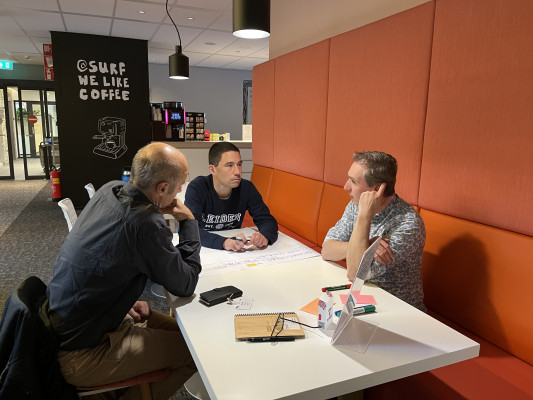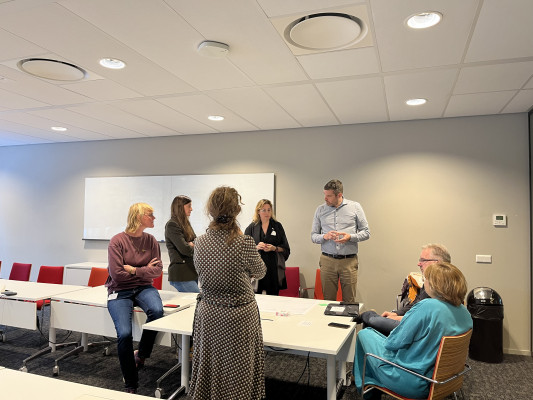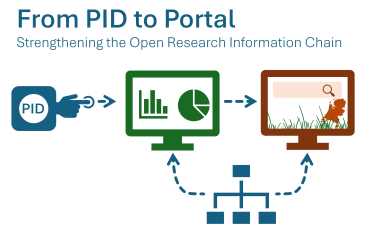Over a year ago I never knew there was so much you could do with research information. Last week showed me once again that there is a community that is eager to tackle PID graphs, metadata standards, portals, all for the cause of making scientific research more transparent and accessible for all.
Maurice Vanderfeesten, ORI Program Manager started off by introducing ORI’s new team and advisory board. He reiterated that science is a public good and we need open research information to safeguard this ethos.
The afternoon progressed with insightful pitches on various initiatives:
- Ludo Waltman of CWTS presented the Barcelona Declaration, advocating for a transition from closed to open research information, which is crucial for unbiased research assessment and the essence of open science.
- Simone Kortekaas of the KB introduced the NL Open Access Portal, a gateway to the Netherlands’ scholarly treasures.
- Arjan Schalken’s pre-recorded video not only gave us a glimpse into his cool vintage cassette and record collection, but also spotlighted the UKBsis data hub, a cornerstone for data-driven insights.
- Jeroen Sondervan of OSNL and NWO made mention of monitoring the increase of Open Science Practices and the need to do this with open and transparent data.
- Tung Tung Chan of Erasmus University Rotterdam and RINN noted that open research information will increase transparency and reproducibility of research intelligence. With AI and the revolutions in data engineering this can hold great promise for the scope and potential applications of research intelligence.
- Paul Tuinenburg of Idfuse mentioned that open research information is essential for startups to make services for their customers like the university administrators (ArmaNL). They used OpenAlex and information from funding databases to make instant dashboards in the input (volume of money) and output (publications) of universities with sciencebase.
Maurice outlined the four key streams of SURF’s ORI Program Plan:
- Laying the foundation for a robust open research infrastructure.
- Increasing metadata quality and coverage, ensuring that research data is not only available but also reliable.
- Connecting and enriching research information, fostering a network of knowledge that is greater than the sum of its parts.
- Making research information visible and (re)usable, so that it can serve as a springboard for further discovery and innovation.
We then laughed (and probably cried) about milestones and obstacles surrounding open science with the help of the GHOST Collective’s game: Open Loves Science.
Groups then delved into project canvases, exploring topics like ORI domain architecture, the sustainability of the Netherlands Research Portal, dashboards, and connecting RISes to repositories. One representative for each group then pitched their project to which everyone gauged the feasibility and urgency through their votes.
We closed with John Doove’s memorable analogy, likening the ORI program plan and the discussed projects to steps on a “stairway to heaven.” His call to action was clear: collective effort is essential, and there’s a role for everyone to play.
This community day was not just about sharing ideas; it was a celebration of the potential that lies in open research information. It was a reminder that when we work together, the path to knowledge is open to all.
Slides can be found here.
*this blog was written with help from Copilot and input from Maurice Vanderfeesten






0 Praat mee